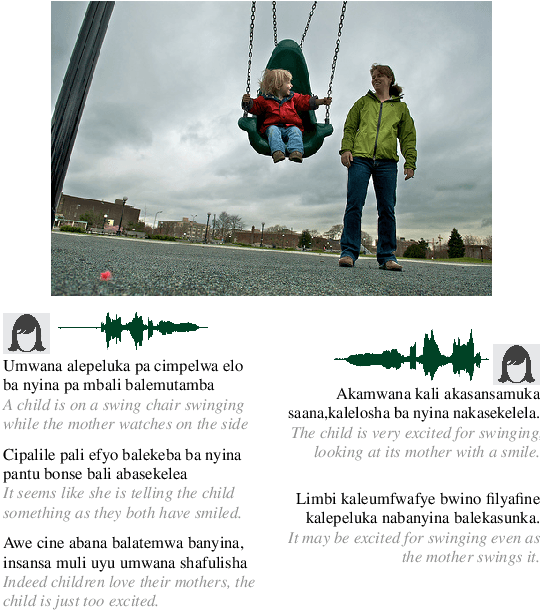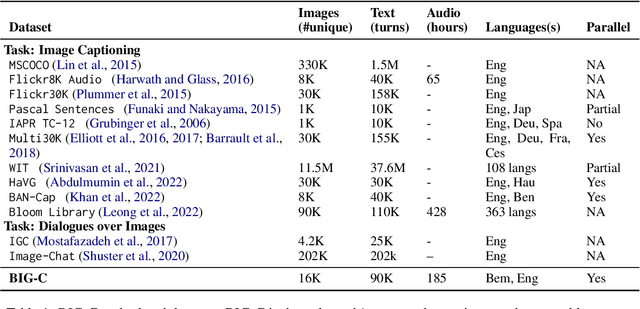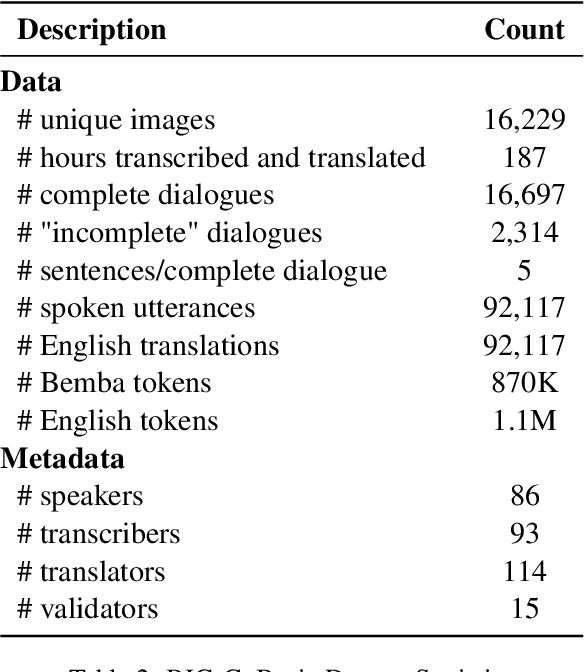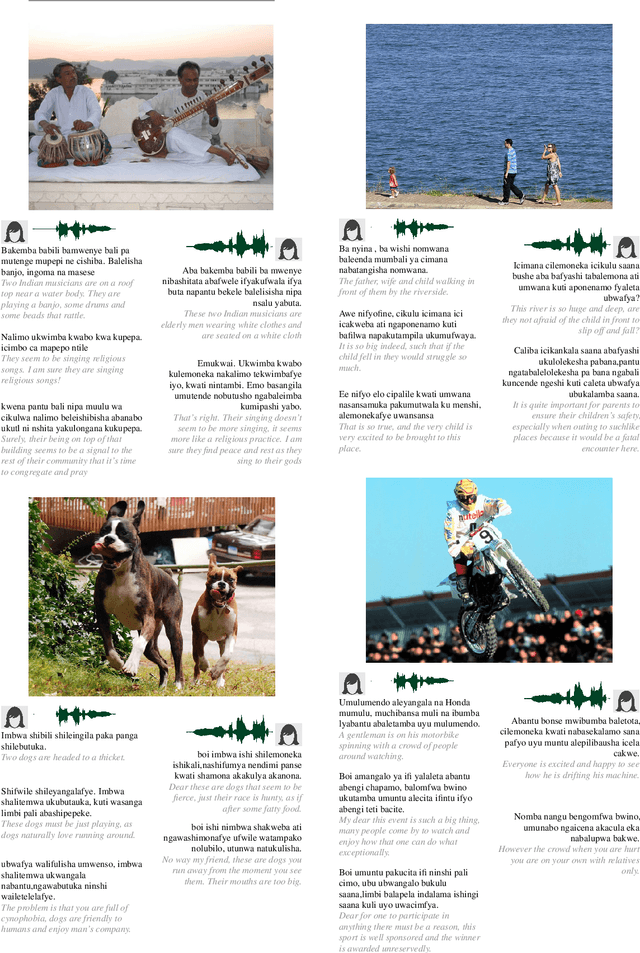Eunice Mukonde
BIG-C: a Multimodal Multi-Purpose Dataset for Bemba
May 26, 2023



Abstract:We present BIG-C (Bemba Image Grounded Conversations), a large multimodal dataset for Bemba. While Bemba is the most populous language of Zambia, it exhibits a dearth of resources which render the development of language technologies or language processing research almost impossible. The dataset is comprised of multi-turn dialogues between Bemba speakers based on images, transcribed and translated into English. There are more than 92,000 utterances/sentences, amounting to more than 180 hours of audio data with corresponding transcriptions and English translations. We also provide baselines on speech recognition (ASR), machine translation (MT) and speech translation (ST) tasks, and sketch out other potential future multimodal uses of our dataset. We hope that by making the dataset available to the research community, this work will foster research and encourage collaboration across the language, speech, and vision communities especially for languages outside the "traditionally" used high-resourced ones. All data and code are publicly available: https://github.com/csikasote/bigc.
AfriQA: Cross-lingual Open-Retrieval Question Answering for African Languages
May 11, 2023



Abstract:African languages have far less in-language content available digitally, making it challenging for question answering systems to satisfy the information needs of users. Cross-lingual open-retrieval question answering (XOR QA) systems -- those that retrieve answer content from other languages while serving people in their native language -- offer a means of filling this gap. To this end, we create AfriQA, the first cross-lingual QA dataset with a focus on African languages. AfriQA includes 12,000+ XOR QA examples across 10 African languages. While previous datasets have focused primarily on languages where cross-lingual QA augments coverage from the target language, AfriQA focuses on languages where cross-lingual answer content is the only high-coverage source of answer content. Because of this, we argue that African languages are one of the most important and realistic use cases for XOR QA. Our experiments demonstrate the poor performance of automatic translation and multilingual retrieval methods. Overall, AfriQA proves challenging for state-of-the-art QA models. We hope that the dataset enables the development of more equitable QA technology.
 Add to Chrome
Add to Chrome Add to Firefox
Add to Firefox Add to Edge
Add to Edge